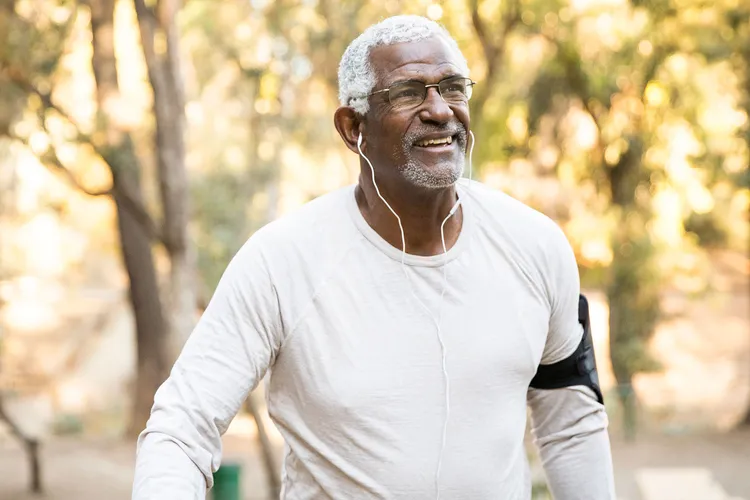Get Fit for Life

It's important to keep moving no matter how old you are. Exercise keeps your body and your brain healthy.
How does it do that? And what's the best way to work it into your life?
Why Exercise Matters
It can help you live a longer, healthier life because it can:
- Keep your bones, muscles, and joints healthy
- Make you less likely to have things like diabetes, colon cancer, and osteoporosis
- Lower your blood pressure
- Manage stress and improve your mood
- Ease symptoms of anxiety and depression
- Lower your chances of heart disease
- Manage chronic conditions like arthritis or diabetes by helping with things like stamina, joint swelling, pain, and muscle strength
- Help with your balance, so you're less likely to fall and break bones
How Much Exercise?
As you get older, you may be a bit afraid of exercise. Maybe you think you might hurt yourself or that you have to join a gym. Or you may not be sure what exercises you should do.
The key isn't how or where you get active, it's just to start moving.
Healthy adults should aim for 150 minutes of activity that gets your heart going and your blood pumping every week. Sure, you can do that in exercise classes. But you can also get it by brisk walking. It's also important to do movements that work all your major muscles at least 2 days a week. Also try to do flexibility exercises 2 or 3 days a week to help with your range of motion.
While 150 minutes may sound like a lot, you don't have to do it in big chunks. You can take a 10-minute walk around the block or spend 10 minutes sweeping the porch. It all adds up.
If you’re feeling energetic, you'll get even more health benefits if you work up to 300 minutes or more of exercise a week.
But a simple goal is to try to get 30 minutes of moderate-intensity exercise on most days. You may be able to do that some weeks and not others. Remember, it's a goal and not a rule. Do what works for you.
